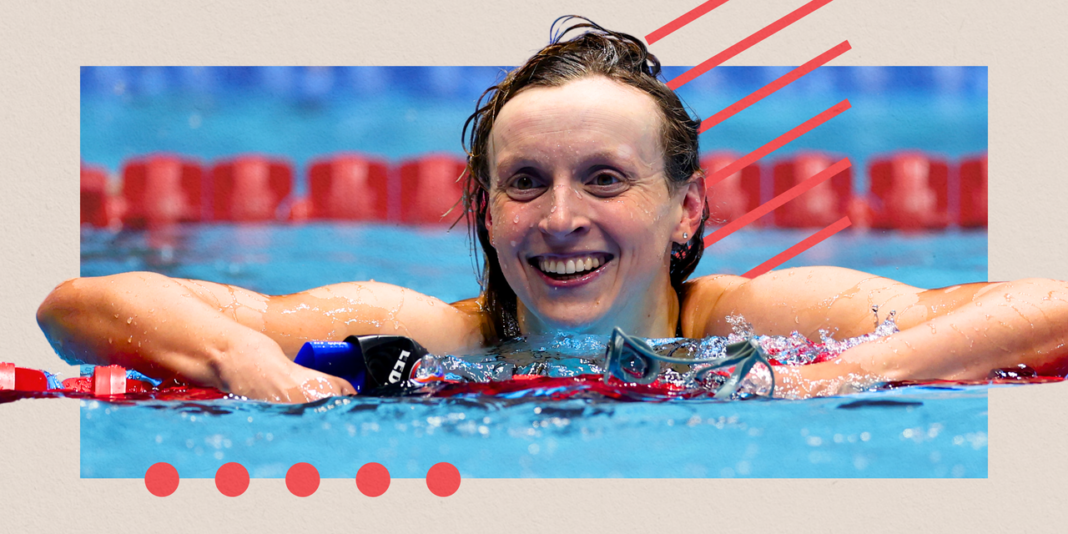While Katie Ledecky was at the 2015 world championships in Kazan, Russia, she started feeling a little weird. After dinner one night, she began to get hot and lightheaded. Then, after returning to training when the competition concluded, she’d have a day or two of feeling okay, followed by a couple with zero energy. Sometimes, as she detailed in her new memoir , she’d get dizzy just walking around.
Those symptoms led to a surprising diagnosis, as Ledecky revealed in her book: She had a health condition called postural orthostatic tachycardia syndrome, or POTS. POTS is a type of dysautonomia, a disorder of your autonomic nervous system, which controls body functions you don’t have to think about (like your blood pressure and heart rate).
With POTS, symptoms occur when you change position, particularly when you go from lying or sitting to standing. As Ledecky describes it in her book, “I pool blood in the vessels below my heart when I stand. My body then releases extra norepinephrine or epinephrine, which adds additional stressors on my heart, making it beat faster. Which, in turn, brings on dizziness, fainting, and exhaustion.”
Nine years later, she continues to live with the condition. And she’s continued to rack up the hardware (and make history) along the way. At her fourth Olympic Games in Paris, Ledecky took home two more golds, a silver, and a bronze. That gave her a grand total of 14 Olympic medals, making her the most decorated female Olymian ever from the US, according to Team USA. And when she earned her last gold of the Games—in the 800-meter freestyle, which she’s won in since 2012—it gave her nine total. That’s the most Olympic golds for any female Olympic athlete from the US and tied her with Larisa Latynina, a Soviet gymnast from the 1950s and ‘60s.
Read on for more on how the Olympic swimming star has managed the health condition POTS while working toward big, history-making goals.
Ledecky keeps consistent with her workouts.
Though it can sometimes feel crappy, especially at first, exercise in general—and swimming specifically—is actually helpful for POTS. In fact, while physical activity trigger symptoms, it’s actually a proven treatment for POTS as well, Benjamin Levine, MD, a professor of medicine and cardiology and founding director of the Institute for Exercise and Environmental Medicine at UT Southwestern Medical Center, told SELF previously.
With swimming, you don’t change positions much, and water acts like a compression suit to control blood pressure. That’s good news for Ledecky, who writes: “What are the odds that the prescriptive exercise for my particular disease would be…more swimming?”
It’s likely that her consistent training benefits her a ton, since cardio exercise boosts circulation and leads your body to create more blood over timestabilizing blood pressure. All that swimming also builds a stronger heart and all-over muscle, which can more effectively pump that blood through her body.
She stays on top of her hydration.
The title of Ledecky’s book could also double as one of her treatment strategies. Drinking plenty of water keeps her blood pressure and blood volume high enough, which helps reduce POTS symptoms. According to Johns Hopkins Medicinefolks with POTS are generally advised to drink at least 2 to 2.5 liters of water a day.




